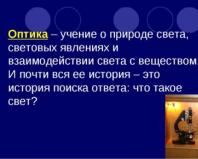Cement plaster praktik. Bergauf “PRAKTIK” Cement plaster for external use (30 kg). Maximum sand fraction
Ordering goods is available only from 1 pallet
Plaster for leveling walls for subsequent finishing putty. Used for work on brickwork, concrete (over 6 months), reinforced concrete, aerated concrete, foam concrete*, old cement and cement-sand plasters. Recommended for façade and basement work.
For machine and manual application.
Specifications
Color | grey |
Maximum fraction sand | up to 1.25 mm |
Consumption of dry mixture per 1 m 2 with a layer of 10 mm | |
Minimum application thickness | |
Maximum application thickness | |
Maximum application thickness for partial leveling | |
Viability of the finished solution in an open container | |
Grouting is allowed through | |
Time to fully gain strength | |
Carrying out work at base temperature | from +5 to +25 0 С |
Brand strength | |
Compressive strength (after 28 days) | |
Strength of adhesion to the base (after 28 days) | |
Operating temperature | from -50 to +70 0 C |
Frost resistance |
*subject to appropriate preparation of the base
Compound
Cement binder, fractionated sand, mineral additives, modifying polymer additives.
Preparation of the solution
For machine application:
- Pour the dry mixture into the receiving hopper.
- Set the initial water flow*.
- Bring the consistency of the solution to the required consistency by adjusting the water flow level.
* Water consumption level depends on the make and model of the machine.
For manual application:
- Mix the mixture with water (from +10 to +25 0 C) in the following proportion:
- per 1 kg of mixture - 0.20 -0.23 liters of water;
- for 30 kg of mixture - 6.0 -6.9 liters of water.
- Stir until smooth.
- Wait 3-5 minutes until everything is finished chemical reactions.
- Stir again.
Preparing the base
The base must be cleaned of dust, dirt, oil stains - anything that can impair the adhesion of the material. The prepared surface must be treated with a primer.
Operating procedure
- Apply a base layer of the required thickness, but not exceeding 25 mm.
- Remove excess as a rule, level the surface.
- The surface can be completely wiped down after 4-5 hours (times are based on the thickness of the applied layer: 25 mm).
Attention!
If the required leveling thickness is more than 25 mm, it is necessary to apply the plaster in layers, allowing each layer to dry. The number of layers is no more than 3. The thickness of the first layer is no more than 25 mm, each subsequent layer is no more than 20 mm. If the required leveling thickness is more than 60 mm, use reinforcing metal mesh. The drying time for each layer is at least 3-5 days.
Safety precautions
Do not allow material to come into contact with eyes or Airways.
Storage
The guaranteed shelf life in a dry place and original packaging is 12 months from the date of manufacture.
Praktik cement plaster for exterior use, 30 kg
Dry mixture for cement based, contains fractionated sand, mineral additives and modifying polymer additives.
PURPOSE:
For leveling walls;
For work on brickwork, concrete (over 6 months), reinforced concrete, aerated concrete, old cement and cement-sand plasters;
For facade and basement work;
For interior and exterior use;
For machine and manual application.
ADVANTAGES:
Availability;
Strength;
Low moisture absorption;
High level adhesion.
INSTRUCTIONS FOR USE:
Preparing the base:
The base must be cleaned of dust, dirt, oil stains - anything that can impair the adhesion of the material. The prepared surface must be treated with a primer.
Preparation of the solution:
For machine application:
Pour the dry mixture into the receiving hopper.Set the initial water flow*.
Bring the consistency of the solution to the required consistency by adjusting the water flow level.
The level of water consumption depends on the make and model of the machine.
For manual application:
Mix the mixture with water (from +10 0C to +25 0C) in the following proportion:- per 1 kg of mixture – 0.20–0.23 l of water;
- for 30 kg of mixture – 6.0–6.9 liters of water.
Stir until smooth.
Wait 3-5 minutes until all chemical reactions are completed.
Stir again.
Execution of work:
Apply a base layer of the required thickness, but not exceeding 25 mm. Remove excess as a rule, level the surface. The surface can be completely wiped down after 5 hours (times are based on the thickness of the applied layer being 25 mm).
PRECAUTIONARY MEASURES:
Avoid contact of material with eyes and respiratory tract;
When working, you must use rubber gloves;
Avoid contact with skin and eyes;
In case of contact with eyes, rinse big amount water;
Keep away from children.
Application:
Used on walls before application decorative plaster with a fraction ≥1 mm, textured wallpaper, finishing putty, ceramic tiles, paints.
The following are allowed as bases: brickwork, concrete, reinforced concrete, cellular concrete, cement and cement-lime plaster, plasterboard, DSP, chipboard.
Scope of work: interior work with normal and high humidity, external – façade and basement.
Application method: manual, machine (with an application layer of up to 25-30 mm).
Specifications:
- color: gray
- maximum sand fraction: up to 1.25 mm
- consumption of dry mixture per 1 sq. m with a layer of 10 mm: 16-18 kg
- minimum thickness application: 5 mm
- maximum thickness application: 25 mm
- maximum application thickness for partial leveling: 35 mm
- viability of the finished solution in an open container: 3 hours
- grouting is allowed after: 5 hours
- time to fully gain strength: 28 days
- grade strength: M 100
- carrying out work at the base temperature: from +5 °C to +25 °C
- compressive strength (after 28 days): 10 MPa
- adhesion strength to the base (after 28 days): more than 0.4 MPa
- operating temperature: from -50 °C to +70 °C
- frost resistance: F 50
Surface preparation:
1. The base must comply with the requirements of SNiP 3.04.01-87.
2. The surface of the base must be cleaned of dirt and dust, paint coatings, peeling old coatings and oil stains - everything that can impair the adhesion of the material to the base.
Attention! Draft, poorly prepared surface, low humidity or elevated temperatures may reduce the pot life of the finished mixture.
Preparation of the solution.
1. Manually
- Pour the dry mixture into water room temperature in the exact proportion indicated on the bag.
- Mix the resulting mixture until a homogeneous mass is obtained with a mixer or by hand.
- Stir the resulting solution again after 5 minutes.
2. By machine.
- Pre-set the water requirement of the mixture (liters per hour) on the flow meter according to the manufacturer’s recommendations, pour the mixture into a bunker from bags, or connect a pneumatic conveying device and fill the bunker in automatic mode from silo.
- Start the machine, adjust the consistency by slowly rotating the flow meter valve.
- Get to work.
Operating procedure.
1. Apply the resulting solution to the surface through a mortar mixer, nozzle onto the surface with a gun, or throw onto the surface using a plaster ladle or trowel.
2. Level the surface using the h rule with a length of 0.5 to 3 meters, depending on the geometric dimensions of the plane being processed.
3. After partial loss of mobility (when the mixture stops sticking with a light touch), level the surface a second time using a trapezoidal rule with a length of 0.5 to 3 meters, depending on the geometric dimensions of the plane being processed.
4. After loss of mobility (when touching the surface with little force will leave small dents), perform “glazing”: using a trowel with a felt or foam coating, apply water to the surface in a circular motion. As a result of this operation, cement “milk” will be released from the surface.
5. Smooth the resulting cement “milk” over the surface using a spatula. This operation will replace puttying.
|
Used for leveling walls for subsequent finishing puttying or wallpapering. Cement plaster Praktik is used for work on such substrates as: brickwork, concrete, reinforced concrete, aerated concrete, foam concrete, old cement and cement-sand plasters Packaging: 30 kg per package |
Price on request * Minimum order quantity for dry mixes: 3 tons! |
| Color | grey |
| Maximum sand fraction | up to 1.5 mm |
| Consumption of dry mixture per 1 m 2 with a layer of 10 mm | 16-18 kg kg |
| Minimum application thickness | 5 mm |
| Maximum application thickness | 25 mm |
| Maximum application thickness for partial leveling | 35 mm |
| Viability of the finished solution in an open container | 3 hours |
| Grouting is allowed through | 5 o'clock |
| Time to fully gain strength | 28 days |
| Carrying out work at base temperature | from +5 to +25°С |
| Brand strength | M 100 |
| Compressive strength (after 28 days) | 10 MPa |
| Strength of adhesion to the base (after 28 days) | 0.4 MPa |
| Operating temperature | from -5 to +70°С |
| Frost resistance | F 50 |
Scope of application of PRAKTIK dry building mixture
Bergauf Praktik is a cement plaster specially designed for outdoor use. Using Bergauf Praktik plaster you can perform rough leveling of walls. But, after this, the wall will need finishing putty or coating. finishing material, for example, wallpaper.
Plaster Bergauf Praktik is used for application on surfaces such as:
- brickwork,
- concrete,
- reinforced concrete,
- foam concrete (with appropriate foundation preparation),
- aerated concrete,
- old cement plaster,
- old cement-sand plaster.
Composition of PRAKTIK plaster
The composition of BERGAUF Praktik plaster includes four elements: cement binder, modifying polymer additives, fractionated sand and mineral additives.
Applying PRAKTIK plastering mixture
Preparation of the solution can be done manually or by machine. Manual method. The instructions on the packaging reflect the proportions and steps proper preparation mixtures.
Manually add dry mortar into water (water temperature: room temperature) and mix everything until smooth (this process can be done manually or using a construction mixer). After 5 minutes, stir the solution again.
Machine method. In accordance with the manufacturer’s recommendations, it is necessary to first set the water requirement of the mixture (l/h) on the flow meter. Pour the mixture from the bags into the hopper, or connect a pneumatic conveying device and fill the hopper of the device automatically from the silo. After this, start the machine and adjust the consistency. To do this, you will need to slowly rotate the flowmeter valve.
At the second stage, start applying the solution to the surface:
1. The solution is applied to work surface using a mortar mixer (jet with a gun). In addition, using a plastering ladle (trowel), the solution can be manually applied to the surface.
2. Level the surface using building regulations(type: h; length: 0.5 - 3 m).
3. After the solution has set on the surface (that is, it stops sticking when pressed lightly), the technology requires it to be re-leveled using a building rule (type: trapezoidal; length: 0.5 - 3 m).
4. After the solution has hardened on the surface (touching with a little force leaves only light dents), the technology requires “glossing”. For this process you will need a grater with a foam (felt) coating. With its help, water is applied in a circular motion to the surface of the plaster, it promotes the release of cement milk.
5. Level the cement laitance over the entire surface with a construction spatula. High-quality execution of this operation replaces the subsequent process of surface puttying.
Advantages of PRAKTIK plaster
Bergauf PRACTIK is a plaster, the production of which minimizes the costs of packaging, advertising, etc. This contributes to the formation affordable price, which certainly attracts many consumers.
A cement-based dry mixture containing fractionated sand, mineral additives and modifying polymer additives.
PURPOSE:
For leveling walls;
For work on brickwork, concrete (over 6 months), reinforced concrete, aerated concrete, old cement and cement-sand plasters;
For facade and basement work;
For interior and exterior use;
For machine and manual application.
ADVANTAGES:
Availability;
Strength;
Low moisture absorption;
High level of adhesion.
INSTRUCTIONS FOR USE:
Preparing the base:
The base must be cleaned of dust, dirt, oil stains - anything that can impair the adhesion of the material. The prepared surface must be treated with a primer.
Preparation of the solution:
For machine application:
Pour the dry mixture into the receiving hopper.
Set the initial water flow*.
Bring the consistency of the solution to the required consistency by adjusting the water flow level.
The level of water consumption depends on the make and model of the machine.
For manual application:
Mix the mixture with water (from +10 0C to +25 0C) in the following proportion:
- per 1 kg of mixture - 0.20 -0.23 l of water;
- for 30 kg of mixture - 6.0 -6.9 liters of water.
Stir until smooth.
Wait 3-5 minutes until all chemical reactions are completed.
Stir again.
Execution of work:
Apply a base layer of the required thickness, but not exceeding 25 mm. Remove excess as a rule, level the surface. The surface can be completely wiped down after 5 hours (times are based on the thickness of the applied layer being 25 mm).
PRECAUTIONARY MEASURES:
Avoid contact of material with eyes and respiratory tract;
When working, you must use rubber gloves;
Avoid contact with skin and eyes;
In case of contact with eyes, rinse with plenty of water;
Keep away from children.




